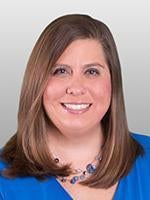On May 21, 2014, the Office of Inspector General (OIG) of the Department of Health and Human Services released a Supplemental Special Advisory Bulletin to provide guidance on fraud andabuse risks presented by patient assistance programs (PAPs) operated by independent charities. Independent charity PAPs provide financial assistance to help needy patients meet their cost-sharing obligations for prescription drugs. The OIG’s bulletin, which supplements previous guidance on PAPs, discusses specific ways that certain PAP arrangements may violate federal fraud andabuse laws and identifies particular features that, if present, will subject independent charity PAPs to closer OIG scrutiny.
Background
In 2005, prior to the launch of the Medicare Part D program, the OIG issued a Special Advisory Bulletin to address whether PAPs operated by charitable foundations could provide subsidies tohelp financially needy Medicare Part D enrollees meet their cost-sharing obligations for covered Part D drugs without violating the Anti-Kickback Statute (AKS).1 The OIG concluded that while sucharrangements presented heightened risks under the AKS, these risks could be minimized with the following safeguards:
- Neither the pharmaceutical manufacturer nor any affiliate of the manufacturer exerts any direct or indirect influence or control over the charity or the subsidy program;
- The charity awards assistance in a truly independent manner that severs any link between the pharmaceutical manufacturer’s funding and the beneficiary;
- The charity awards assistance without regard to the pharmaceutical manufacturer’s interests and without regard to the beneficiary’s choice of product, provider, practitioner, supplier, orPart D drug plan;
- The charity provides assistance based upon a reasonable, verifiable, and uniform measure of financial need that is applied in a consistent manner; and
- The pharmaceutical manufacturer does not solicit or receive data from the charity that would facilitate the manufacturer in correlating the amount or frequency of its donations withthe number of subsidized prescriptions for its products.
Subsequently, the OIG issued several advisory opinions to foundations that provide cost-sharing assistance to Medicare Part D patients. Those opinions clarified that OIG would not impose sanctions on foundations operating in accordance with the guidelines above.2 However, foundations and manufacturers have struggled with implementing some of these safeguards, particularly as they havetried to develop mechanisms to provide assistance with high-cost specialty products intended for narrow patient populations. The Supplemental Special Advisory Bulletin addresses particular risksthat have recently come to OIG’s attention in light of these challenges.
Fraud and Abuse Concerns
Under the AKS, it is a criminal offense to knowingly and willfully offer, pay, solicit, or receive any remuneration to induce or reward the referral or generation of business reimbursable by anyfederal health care program. The OIG highlights two features of independent charity PAPs that may trigger AKS sanctions:
- Donor Contributions to PAPs: an AKS violation may occur if a pharmaceutical company donates to an independent charity PAP in order to induce the PAP to recommend or arrangefor the purchase of the company’s federally reimbursable products.
- PAP Grants to Patients: the AKS may be violated if a PAP offers financial assistance to a patient in order to influence the patient to purchase (or induce the patient’s physician toprescribe) certain products.
Determination of whether donor contributions to PAPs or PAP grants to patients violate the AKS “requires an individualized evaluation of all the relevant facts and circumstances, . . . [whichinclude] the nature, structure, sponsorship, and funding of the particular PAP.”3 In addition to implicating the AKS, PAP grants may also implicate the Beneficiary Inducements Civil MonetaryPenalties Law (CMP), which imposes monetary penalties against anyone who offers or transfers remuneration to a Medicare or State health care program beneficiary that is likely to influencethe beneficiary to order or receive from a particular provider, practitioner, or supplier any item or service for which payment may be made by Medicare or a state health care program.4 A cost-sharing subsidy provided by a pharmaceutical manufacturer through a PAP donation may implicate the Beneficiary Inducements CMP if the subsidy is likely to influence a beneficiary’sselection of a particular provider, practitioner, or supplier—for example, by making eligibility dependent on the patient’s use of certain prescribing physicians or certain pharmacies to dispensethe drugs.
Increased Scrutiny of How Disease Funds and Eligibility Criteria Are Defined
In the new bulletin, the OIG reiterates its view that “an Independent Charity PAP must not function as a conduit for payments or other benefits from the pharmaceutical manufacturer topatients and
must not impermissibly influence beneficiaries’ drug choices.”5 It explains that in the future it will scrutinize the following two areas to determine whether an independent charity PAPimproperly induces the use of particular drugs:
- Narrowly Defined Disease Funds: the OIG is increasingly concerned with independent charity PAPS that define their disease funds so narrowly that they effectively steer patients to alimited subset of drugs. A narrowly defined disease fund may trigger OIG scrutiny if the fund results in exclusively or primarily funding the products of donors or if other factors suggestthat it is structured to induce the purchase of donor’s products. Improperly narrow approaches to defining disease funds include, but are not limited to, references to specific symptoms,severity of symptoms, the method of drug administration, the stages of a particular disease, or the type of drug treatment.
The OIG will also scrutinize disease funds limited to only a subset of available products approved by the Food and Drug Administration (FDA) or covered by relevant federal healthprograms. While there are circumstances where there is only one Part D-covered drug for a disease or just one pharmaceutical manufacturer that makes all of the Part D-covered drugs fora disease, “a disease fund that covers only a single product, or the products made or marketed by only a single manufacturer that is a major donor to the fund, will be subject toscrutiny.”6
Eligibility Criteria: the OIG is concerned that certain ways of assessing patient financial need for participation in an independent charity PAP may improperly induce the use of particular drugs.In particular, the OIG has instructed that the cost of a particular drug cannot be a stand-alone factor in determining a patient’s financial need. The OIG also notes that generous financial need criteria, especially when a fund is limited to a subset of available drugs or the drugs of a majordonor, may constitute evidence of intent to support copayments for a particular drug for the purpose of inducing use of that drug, rather than to support financially needy patients diagnosed witha particular disease.
Donor Conduct
To date, OIG advisory opinions involving independent charity PAPs have focused on the conduct of charities rather than donors. To receive an OIG opinion, a charity must certify that it will take certainactions to ensure the independence of the PAP from donors, such as avoiding disseminating information that would allow donors to correlate its donations with the number of patient recipients who use its products or services. The OIG clarifies in the Supplemental Special Advisory Bulletin that OIG opinions “do not address actions by donors to correlate their funding of PAPs with support for their own products,” and notes that such actions may reflect “a donor’s intent to channel its financial support to copayments of its own products, which would implicate the [AKS].”7
Potential Modifications to Favorable Advisory Opinions
Although the OIG reiterates that properly structured independent charity PAPs are a valuable resource, it is also increasingly concerned about potential fraud, waste, and abuse risks that occur whenthese PAPs are not sufficiently independent from donors. To this end, the OIG now states that it may review, and potentially modify, favorable Advisory Opinions relating to independent charity PAPsthat it has already issued. Favorable advisory opinions will continue to protect existing PAP arrangements until any final notice of modification or termination is posted.




 />i
/>i


